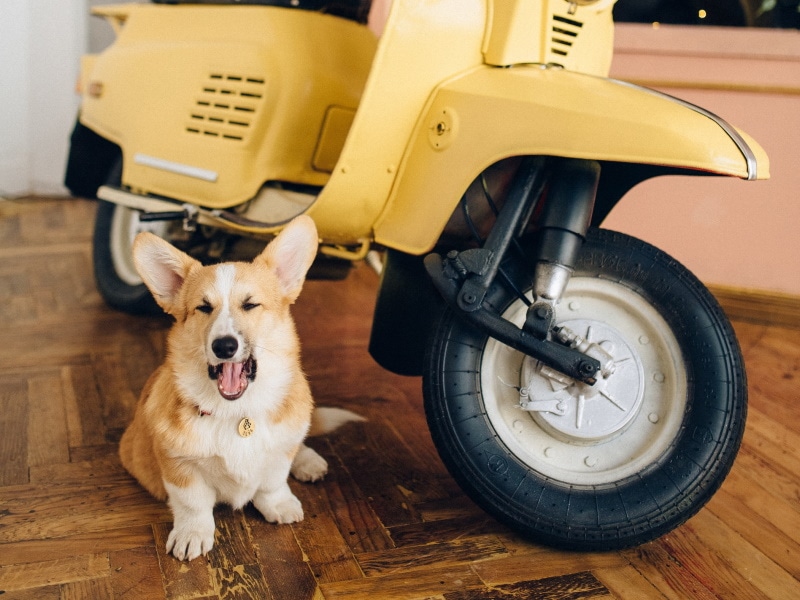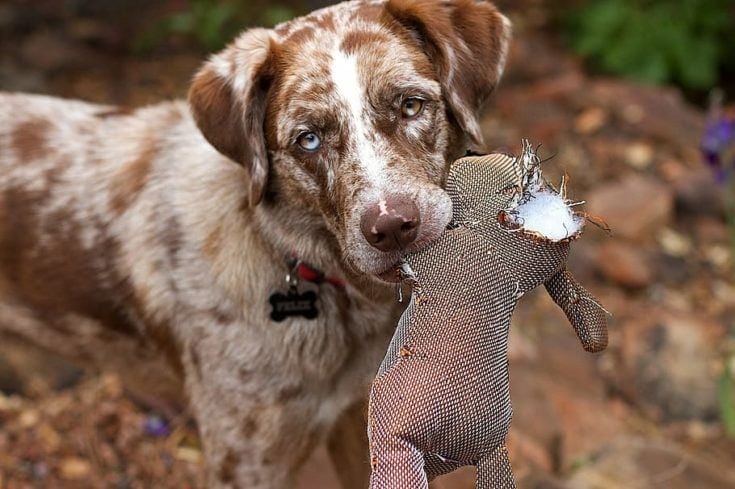How Long Do Samoyeds Live? Average Lifespan, Data & Care Guide
By Kit Copson
Updated on

Click to Skip Ahead
Samoyeds have an awful lot going for them. Not only are they simply dazzling to look at, but these white fluffballs, when well-socialized, are sweet-natured and gentle, yet lively and extroverted dogs that enjoy interacting with people and canine companions.
For these reasons, many dog lovers no doubt dream of parenting a Samoyed, but may ponder whether they’re prone to any health conditions and how long they’re expected to live on average. In general, a Samoyed’s lifespan is 12-14 years. In this guide, we endeavor to answer all your questions about Samoyed health, lifespan, and general care.
Samoyed Average Lifespan
According to the American Kennel Club, Samoyeds have an estimated life expectancy of around 12–14 years, which isn’t too shabby at all! For the purpose of comparison, some of the breeds with long life expectancies are Dachshunds (12–16 years), Chihuahuas (14–16 years), Toy Poodles (10–18 years), and Parson Russell Terriers (13–15 years).
On the flip side, some breeds are sadly known for having comparatively short life expectancies. These include Great Danes (7–10 years), Bulldogs (8–10 years), and German Shepherds (7–10 years).
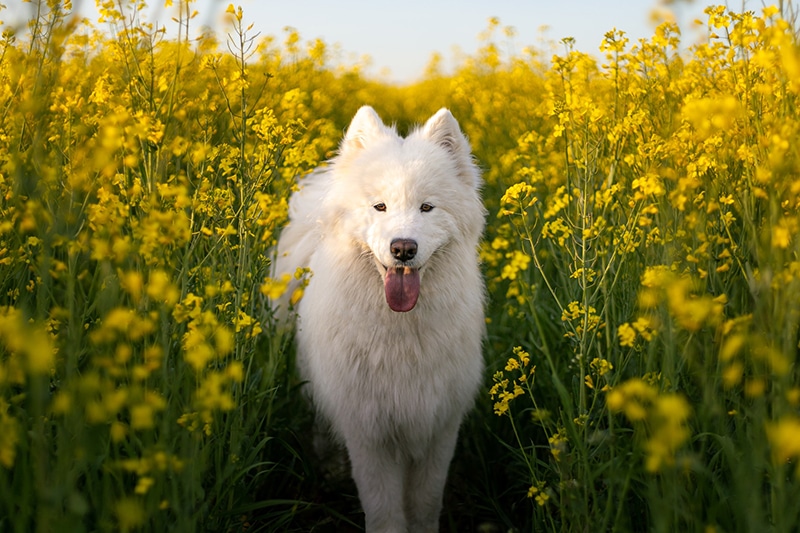
Why Do Some Samoyeds Live Longer Than Others?
Feeding & Diet
Your Samoyed’s food will depend on their age. For example, if you have a puppy, ensure they’re only eating puppy food—not food formulated for adult dogs. This is important because puppy food is specially designed to support healthy growth and development, and they tend to contain more protein for this purpose.
It’s also necessary to check that your Samoyed’s formula is suitable for their size since some recipes are tailored specifically for small, medium, or large dogs. If your Samoyed has a health condition, your vet might recommend a certain type of formula targeting that condition (joint care, kidney support, weight management, etc.).
It’s ideal to split your Samoyed’s food portions into at least two meals per day, feeding one portion in the morning and one in the evening. Refer to feeding guidelines on the food packaging to get an idea of how much you should be weighing out for your Samoyed’s body weight.
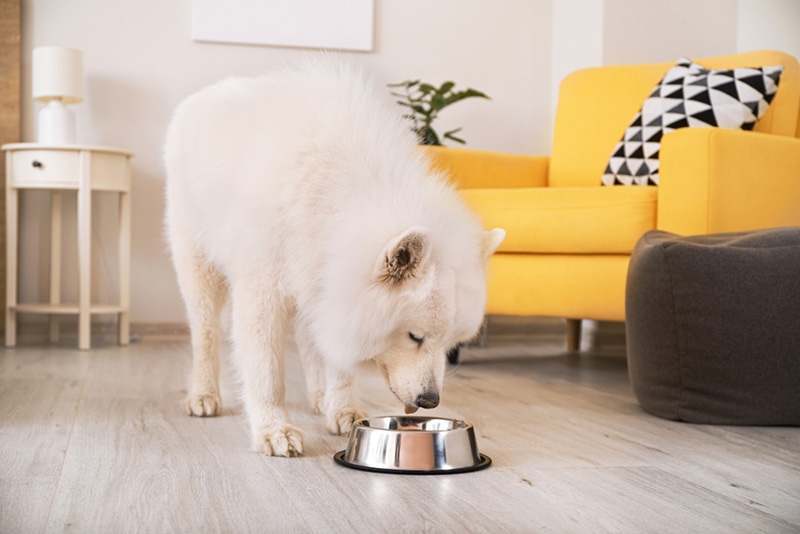
Exercise
Samoyeds were originally bred for hunting, sled-pulling, and herding, so they’re very active and athletic dogs. According to the PSDA, Samoyeds need around 2 hours of exercise per day.
Daily exercise is hugely important for keeping your Samoyed in good shape and serious health conditions, like obesity, at bay. It’s also important for their mental health—physical exercise helps keep them stimulated and contributes to fewer destructive behaviors.
Coat Care
Samoyeds are double-coated and shed year-round, though the shedding rate increases with the arrival of those dreaded shedding seasons. It’s best to brush your Samoyed every day to keep both the coat and skin well-moisturized (brushing distributes natural oils) and in good condition. Feeding a high-quality food formula is another crucial factor when it comes to good skin and coat health.
Regular nail trimming, ear checks, and tooth brushing are other aspects of grooming that are sometimes overlooked but are just as important as coat care.

Healthcare
There are a few breed-specific conditions that have been linked to Samoyeds, including hip dysplasia, heart conditions, and retinal conditions. Samoyed hereditary glomerulopathy, which is a disorder affecting kidney filtration, is another serious condition Samoyeds are at risk of inheriting.
If you buy from a breeder, we’d urge you to thoroughly research the individual to ensure they conduct screenings for genetic health conditions and have overall excellent welfare standards. If you adopt, the organization will tell you as much as they can about the dog’s health history. Your Samoyed will need a vet checkup at least once annually.
The Life Stages of a Samoyed
The first stage of a Samoyed’s life is puppyhood, which is marked by the first 6–9 months of their life. This stage ends when the rapid growth phase is over.
Next, your Samoyed will enter the young adult stage, which lasts until they’re around 3 or 4 years old, then the mature adult stage, which lasts until the dog enters the final 25% of their estimated lifespan (around 10.5 years if we base our estimation on the Samoyed’s expected lifespan of around 14 years). Finally, your Samoyed will become a senior dog.
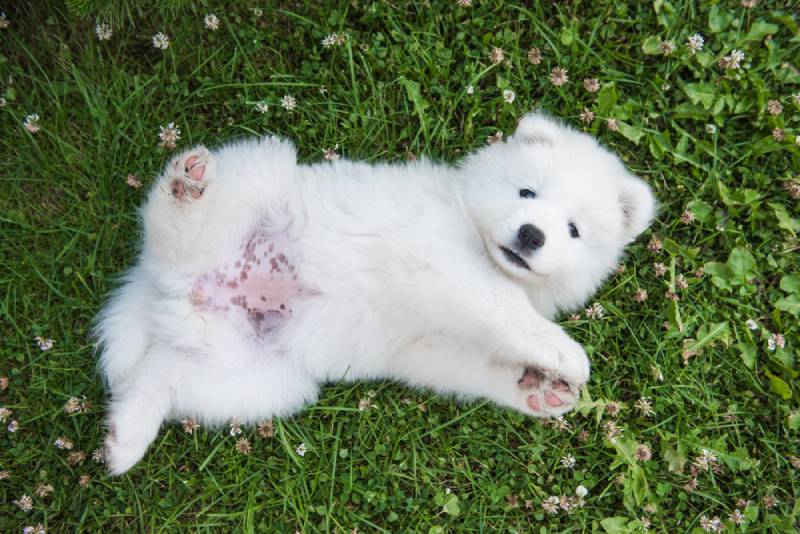
How to Tell Your Samoyed’s Age
If you don’t know your Samoyed’s date of birth—perhaps because you adopted them (go you!)—a vet won’t be able to tell you their exact age, but they can give you an estimate. To do this, vets examine a variety of physical features to check for signs of aging.
For example, they may look at the teeth to determine how much they’ve yellowed. Whiter teeth often indicate that a dog is quite young, but not in every case—a young dog with poor dental health can display yellowing and signs of disease.
Vets also look for gray areas on the coat, especially on the face and muzzle (though some dogs develop gray hairs at a young age), and clouding of the eyes. The dog’s energy levels and mobility are also taken into account.
 Conclusion
Conclusion
Well-cared-for Samoyeds can live for up to 14 years and even longer. By making sure your Samoyed eats healthily, is well-groomed, gets plenty of exercise, is mentally stimulated, and visits the vet on schedule for general health checkups, you increase your dazzling dog’s chances of sticking around for a long time.
See also:
Featured Image Credit: Nikolai Tsvetkov, Shutterstock


